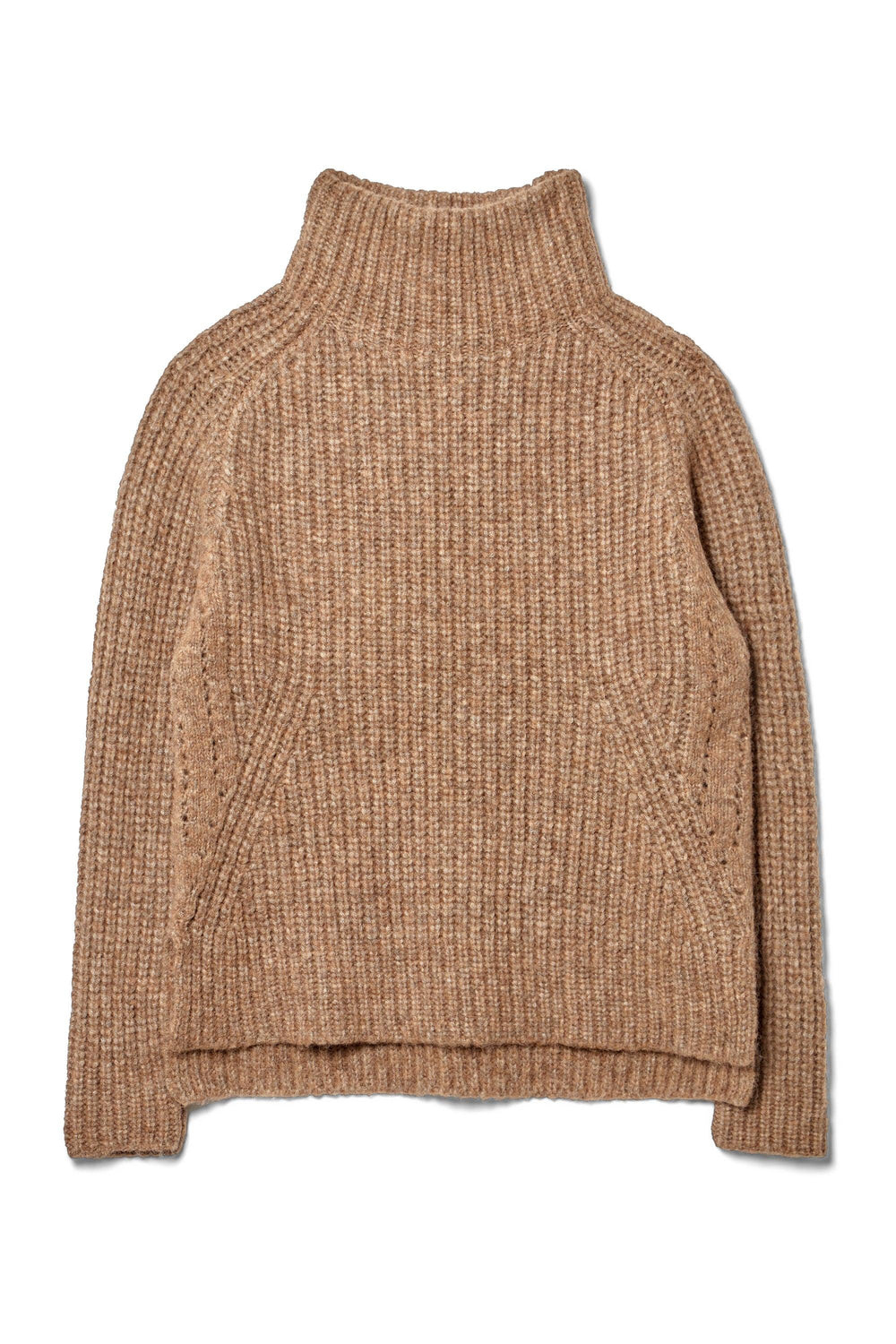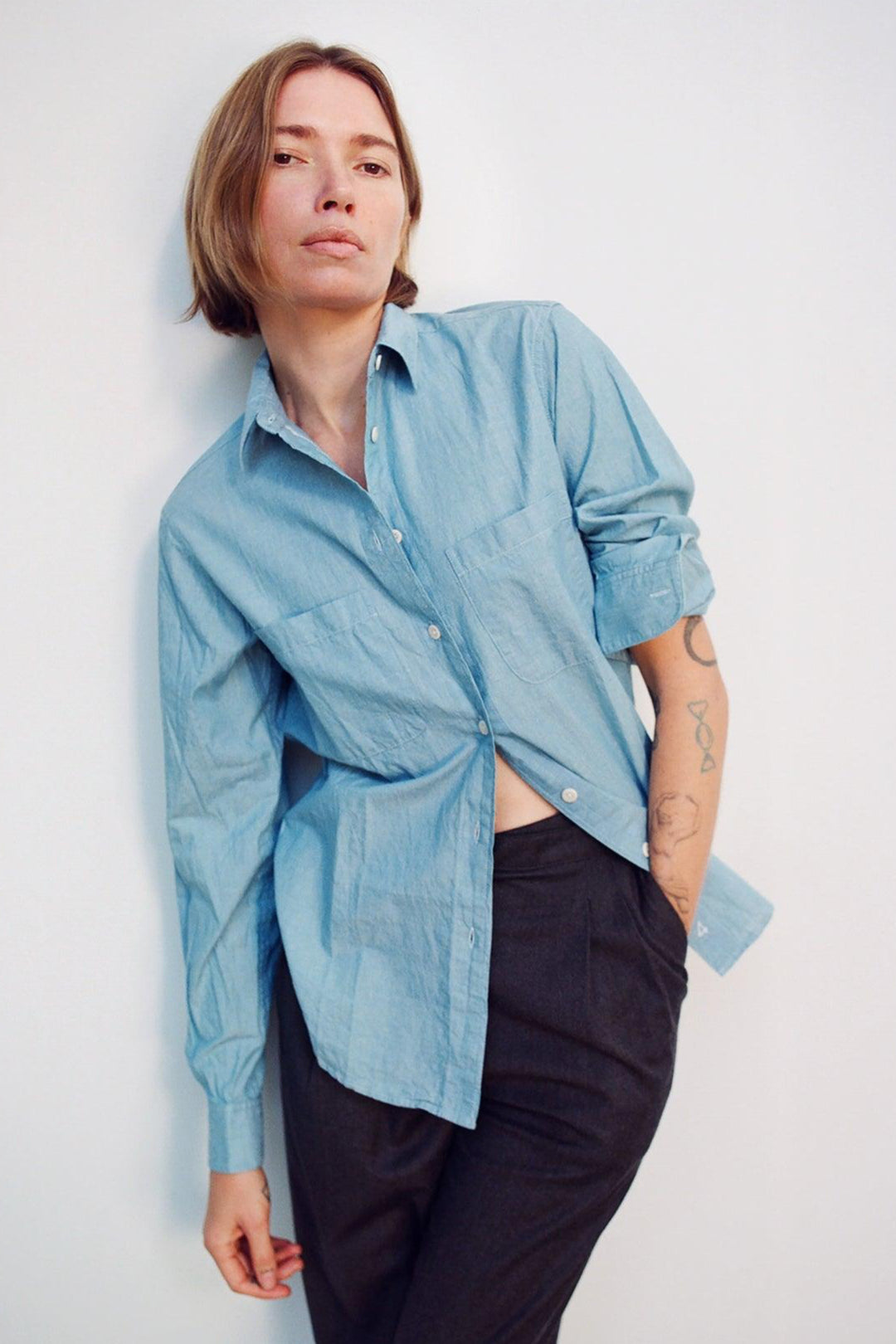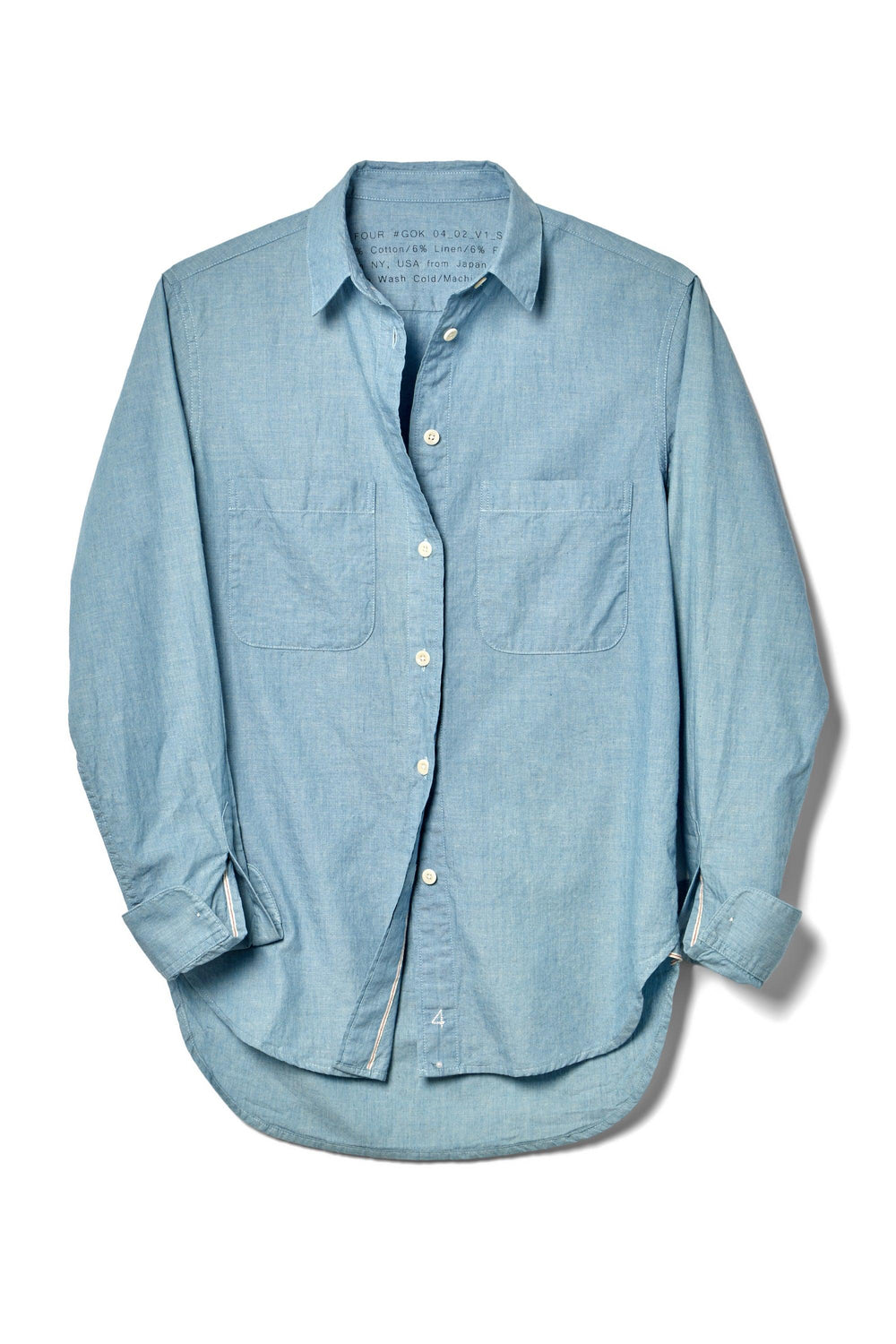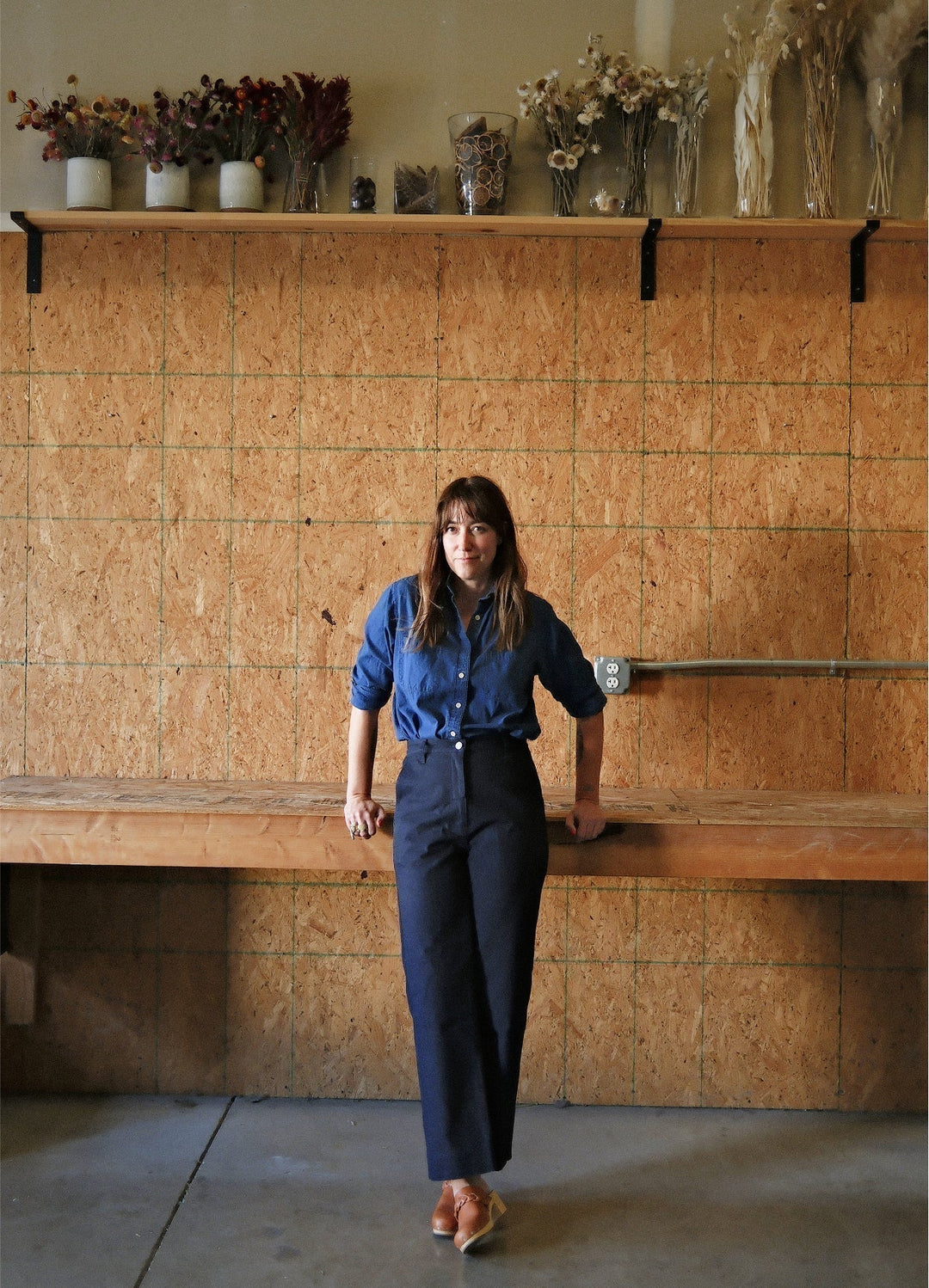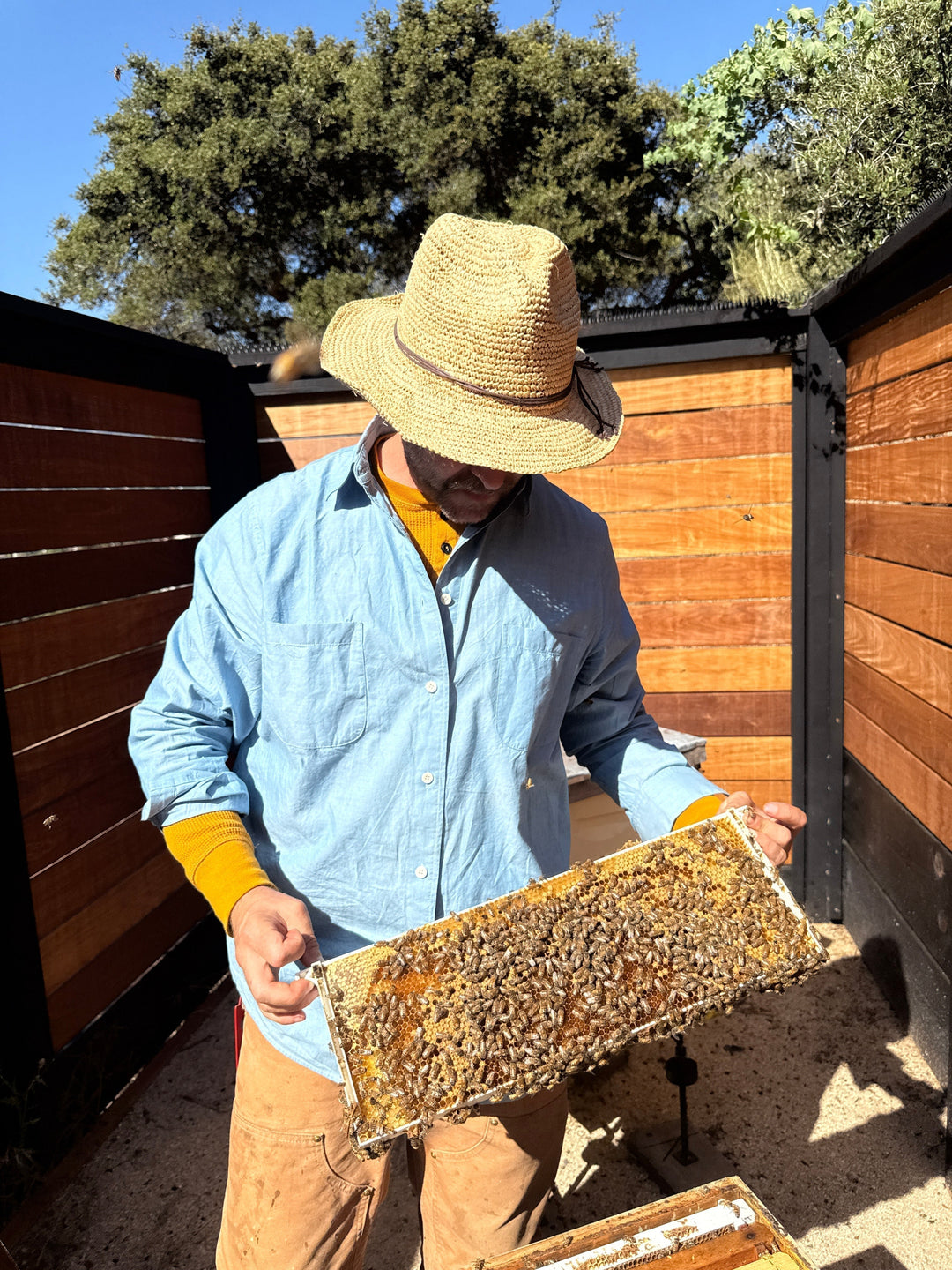Celebrities2Us: Shelly Gottschamer
Everyday is Earth Day at FOUR but April is an opportunity for us to highlight efforts around the globe for a more sustainable future. This month's Celebrity2Us was a no brainer. May we introduce, Shelly Gottschamer, our expert in Sustainability and Supply Chain.
Over the past few weeks, amidst global turmoil, we've been passing emails back and forth between Colorado and New York, trying to make sense of life, vocations and the future.
4: What brought you to this work? How did you start your career in sourcing & sustainability?
SG: I started sewing when I was 5 – making Barbie doll clothes on my mother’s treadle. I always wanted to be in textiles from a very young age. I started my career in product development. Essentially, I am a master pattern maker and a tailor, which has certainly helped me in my career. I transitioned into production and then sourcing. After 1000+ factory visits, seeing the good the bad and the ugly,
"I realized I was in a position to create change and have focused on responsible manufacturing ever since."

4: One way to think about a vocation is when one's personal interests merge with their ability to engage the world in a meaningful way. While it sounds logical to go from design to sourcing to supply chain you've probably had a wild ride along the way. Can you tell us more about your personal journey and how it might relate?
SG: In my early career, creating and building product evolved into a curiosity about how global businesses are run, how they think, and to consider what pressures they face. Ultimately this curiosity became humanized, who are the faces and hands that make up the global supply chains that produce what we are wearing. The people in these communities, for the most part, in impoverished areas where wages are super low and environmental regulations are not enforced, if they existed at all, sparked an interest in how business could be used as a force of good.
My wild ride, so to speak, is that I've always thought of myself as a late bloomer. I was raised by California hippies which inspired an early engagement with the natural environment.
"I always think that I/we should be further along in our journey…"

4: Like many people right now, we’re overwhelmed thinking about war and suffering and uncertainty. It's hard for us to think about the future of sustainability amidst so much instability. What implications do you think the war might have on the supply chain both short & long term? Combined with year two of the global pandemic and increasing challenges wrought by Climate Change, as a sustainability expert, do you have any insights on what we're facing?
SG: From the pandemic to the war, there certainly is a lot of uncertainty. Inflation at 40 year high certainly does not help. I think it's important to have hope. Hope that the war will not spill over and include us all, for one. Hope that we will grow and evolve past the terror of a species that we are. In regards to sustainability, at least now it is table stakes.
"You have to be doing something, and you have to be paying attention. 2030 is 8 years away. 8 years."
So we have a lot of work to do and we have to accelerate, I have hope that we will do that. Climate migration is most likely inevitable, we need a wholesale systematic change in the way we relate to our environments including the disparity in equality. From how we grow our food (big ag versus small plot farmers), to how we mobilize, monetize (what is the value of a thing) to how we create and utilize energy.
4: On the one hand, it feels like we're on the precipice of a massive natural resource grab where human and environmental casualties will be at catastrophic levels. And on the other, we try and maintain a level of hope and action just to function; from measuring the environmental impact of every dollar we spend as a business and how we model compassion, empathy and even our outrage. Like you said, 8 years.
What could wholesale change do in 8 years? We’d like to see Natural Resource Accounting and the GDP equation recalibrated to the triple bottom line. We’d need tax codes revamped to incentivize the planet and people. And we’d like to see every company providing a living wage as well as accountable for the life cycle of their products, every municipality well-funded for community food, composting and recycling, every building code revamped, etc..
SG: I entirely agree… we have to start incentivizing the right behaviors. There is a lot of work that’s starting to happen, mostly in Europe around policy. And it's starting to happen here too, with the build back better plan the new SEC rulings on climate disclosures. I just hope it's fast enough.

"We all have to step up, the age of the climate denier is over."
4: How should we all step up? What would you like to see everyone doing right now?
SG: As individuals, get educated and do your part. Recycle, buy less, drive less, eat less meat and so on... As businesses, drive more policy, buy more preferred fibers, and put climate and people first in your strategies.
4: This might be back tracking a bit, but if you were going to start your own apparel brand, what would you do, where would you start? Are there materials that you would exclusively use or ones you'd stay away from?
SG: I am a big fan of natural fibers. There really is no easy way out though, because nothing is truly sustainable. You do one thing, and you think it’s the right thing, but then there are unintended consequences.
Everything has an impact. It's funny, as a sustainability practitioner, somehow the conversation always ends up in a philosophical bent; the nature of work, the “true cost” of consumption…
So what would I do? Start small, incorporate people and the planet and do the best I could to minimize my impacts.
4: We thought FOUR was doing this and then last year we really started to think more about the strain on farming worldwide and its deep relationship to both climate change and inequality so we've begun asking ourselves why are we using any virgin materials? We are already committed to natural fibers but, like you said, nothing is truly sustainable.
SG: There is a movement around regenerative agriculture, and there is a standard ROC (Regenerative Organic Certified) which is relatively new. These are low till, cover crop farming practices to store carbon in the soil. There are similar practices in grazing (sheep, alpaca, etc) that promote soil health. There should be more of these materials on the market, but these types of movements start small.
4: We dream of making the perfect urban raincoat, a true marriage of the technical shell which works very well with the stylish trench which fails in a downpour. We moved it's development to 2024 because of the lack of sustainable waterproof options. We'd love to make it out of post-consumer plastic and recycled trims. It would be fabulous to make it 100% recyclable as a finished garment but then if we have to bond or coat it then maybe we'll lose that ability? If we use coated cottons will we end up with a much heavier garment and the same concerns regarding recyclability? Maybe we're missing an obvious solution, what would Shelly Gottschamer do?
SG: It’s important to think about the impacts of the different materials so you can make the right choice. Surprisingly, I found out a number of years ago that waxed cotton actually has durable water repellency (DWR) in the recipe, and at the time, it wasn’t even the better chemistry (C6 versus C8). DWR chemistry is a long chain molecule that never breaks down (C8+), which has been found in our environments on all continents. C6, is a shorter chain but has it drawbacks as well, such as do you need more, do these chemicals break down? The industry has been moving to C Zero – it doesn’t have the same chemistry, is a better choice, but the effectiveness varies. Perhaps a recycled material with a C Zero finish is a better way to go?
4: We need to pull your seat closer to the design table for this one!
♡



